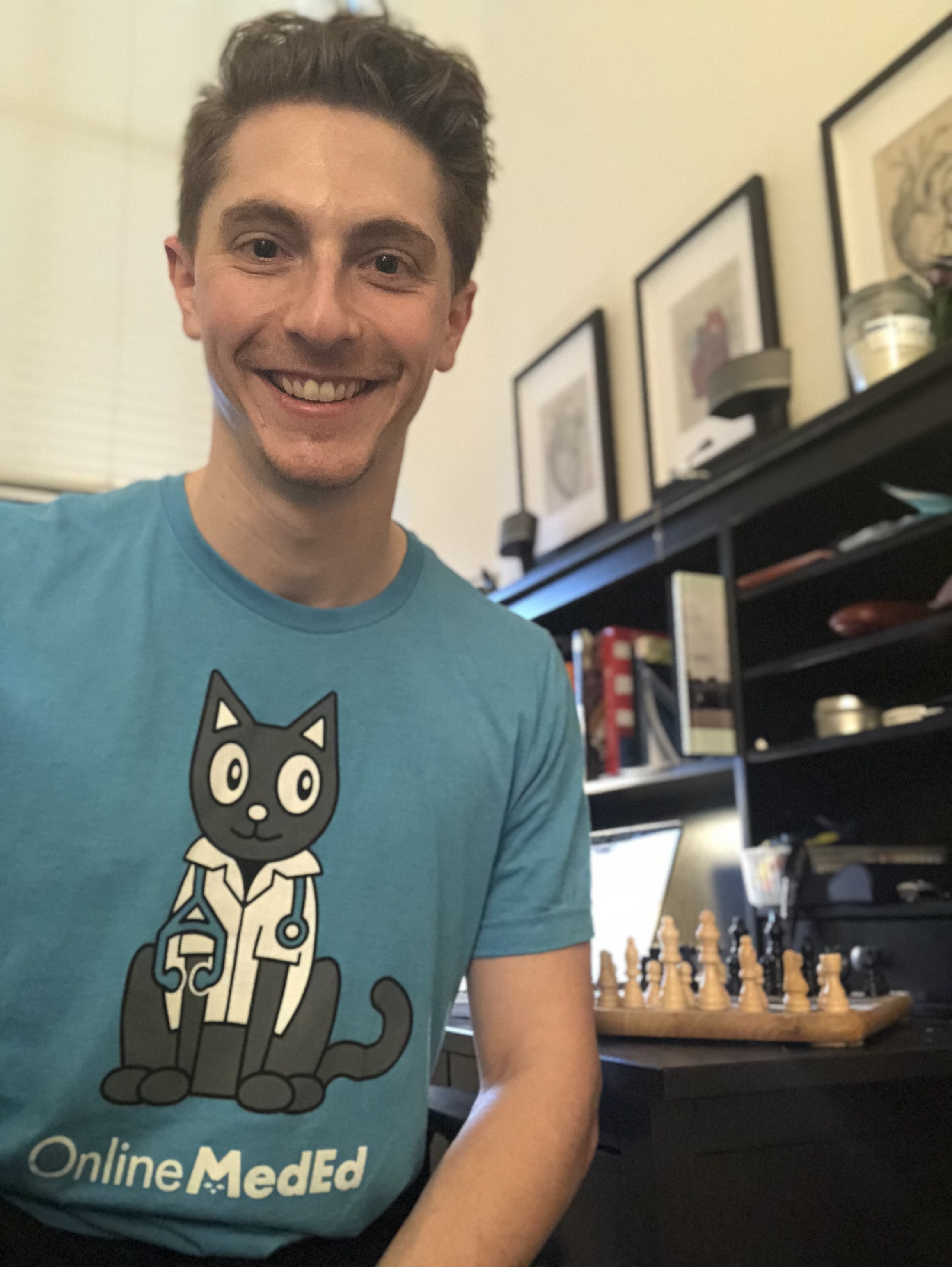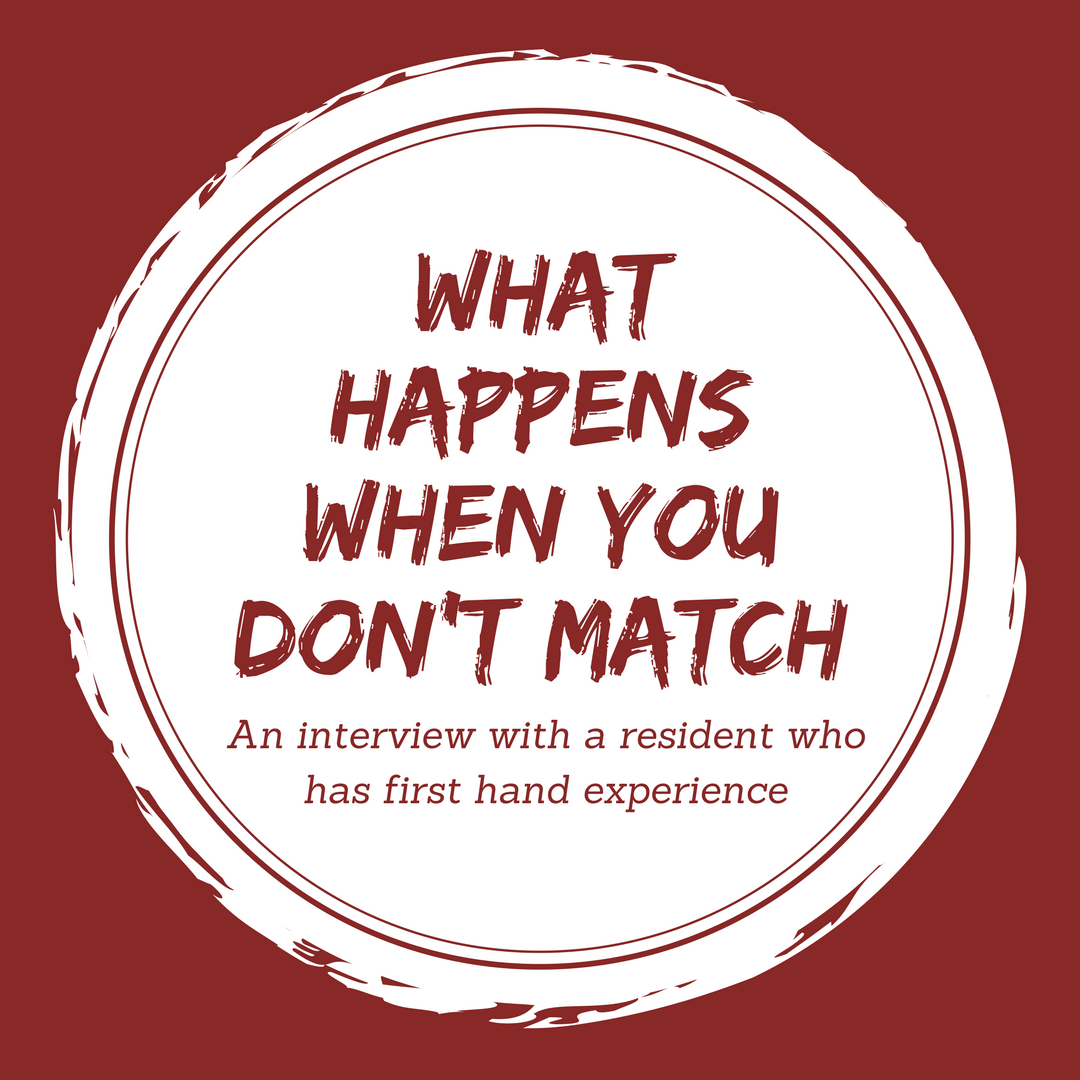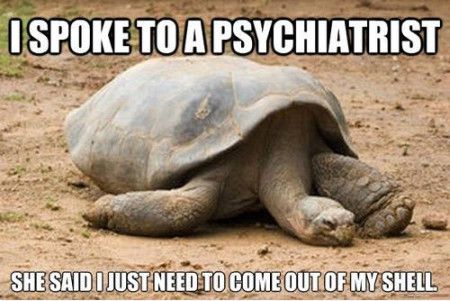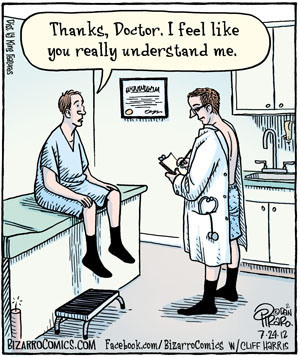What happens to medical students who don’t match? Here’s what one unmatched psychiatry applicant had to say.
Thanks for letting me interview you Steven. You have a pretty unique story that my readers would love to hear about but before we delve in can you tell us a little bit about yourself? Who are you professionally? Did you go straight from undergrad to Ross? Who are you outside of the hospital?
My pleasure, Marc. I appreciate the opportunity to share my story as I feel people can learn from any experience in this process, both good and bad. I graduated from NYU in 2010 with a Bachelor of Arts in Mathematics. After graduation, I had about six months before starting with Ross University’s MERP (Medical Education Review Program) and I knew I needed to make money. So I took a job that any medical school bound person takes – working in the jewelry and diamond industry. I did mostly bookkeeping but I also prepared orders for a wholesale company that dealt with Macy’s, JcPenney, Sears, HSN, QVC, etc. It taught me a lot about dealing with large staffs and it was a nice break away from the science and math world I had spent so much time with in undergrad.
Professionally, I’m the one making jokes in the office but I focus on the patient when I’m in the room. I like to be a reason people enjoy coming to work, because they know it’ll be fun and productive. On the same token, I’m also someone who isn’t afraid to call someone out for their BS because I expect someone to do the same to me if I ever act out of line. I also am one of the first people to teach someone how things run in the office, how to order labs, do procedures, etc. Not only do people feel comfortable if it’s a peer teaching them but it helps me better my skills as well.
What specialties did you apply for? How many programs in each specialty? What was your reasoning for that number of programs?
I applied to psychiatry, internal medicine, and internal medicine-psychiatry combined. For psychiatry, I applied to 76 programs. For internal medicine, I applied to 10. And for IM-psych, I applied to all 9 programs in the country. My step scores weren’t that competitive and there are only 196 psychiatry programs in the country. I went through each program on FREIDA and checked to see if I matched their step requirements. If I did, I tried to see who the residents were. If there were zero or one Caribbean grad in all the PGY positions, then I didn’t apply as I felt that that one particular Caribbean grad may have had a connection there or had stellar scores. Plus, why would I spend money on programs that were going to outright reject me?
For IM, I applied to where I had rotated and since I could apply up to 10 for one fee, I applied to some hospitals in the NY/NJ area (which is where I’m from). And for IM-psych programs, there were only 9 so it made the most sense to apply to all of them.
How many interviews did you end up receiving? How did you feel your chances were at matching?
Formally, I received three interviews, but in total, I ranked four positions. I received 2 for psychiatry and I was taken off the waitlist for 1 IM-psych program. All of them were university-based programs. At the IM-psych program, I had mentioned that I had also applied for a psychiatry categorical position at the same place and I wanted to know if I had to come back for another interview, which I was totally willing to do. Ten minutes after that mini-interview, I had an impromptu meeting with the program director of psychiatry and she told me that she will see what the other four interviewers had to say about me from that day and she would let me know if I needed to come back or not. Two weeks later, I’m notified that she had enough to consider me for a position. Throughout the next two months prior to match day, I had received several emails about how the psychiatry program is expanding and there’s new facilities and all these wonderful things. I didn’t think I was a shoo-in but I felt that maybe I had a great shot.
So, it’s Monday, March 14th. The day applicants find out if they matched. You open the e-mail and find out that you did not obtain a residency. What’s going through your head?
Before that day, I told myself whatever happens, happens. I actually slept well the night before! I was driving in Fort Lauderdale and taking care of some errands and I happened to look at my phone. For five seconds, I was completely numb. And then it hit me. My biggest fear came true. All that work, all that money, all the stress, and for what? Nothing.
*cue Kim Kardashian ugly crying*
I can honestly say that it is one of the most devastating experiences and I would not even wish it upon an enemy. The e-mail just says “you did not match”. Not even a “good morning” or “hey girl!” Just one line that says you’re not good enough to continue in your career. After quickly doing my errands and a few snot-filled tissues later, I sped home passing several cops on the way and began on SOAP.
Most of us aren’t familiar with the SOAP, or the Supplemental Offer & Acceptance Program. Can you walk us through your experience with it? (Here’s a link to the SOAP schedule for my readers)
SOAP is a chance for unmatched applicants to apply to unfilled spots in all fields of medicine. However, this means that you will have to come up with new personal statements in the matter of hours, which is exactly what I had to do for family medicine. As Markus said in a previous posting, the website was down and no one could send in applications (because like LOL, heaven forbid the ERAS website works when it needs to).
I spoke with a friend who match into IM the year before through SOAP and she guided me through the process while she was at work. She told me to apply to the IM prelim, IM categorical, and family med programs that had the MOST open spots. I had only 45 spots to pick from and I used 5 of them on psychiatry programs that were unfilled. Then I went through family medicine and internal medicine. In retrospect, I could’ve used those 5 on family medicine or IM spots but what’s done is done.
So on Monday you found out that you didn’t match. Then during the week you went through the SOAP. Friday comes along and you find out that you didn’t SOAP into a residency. How did that feel?
By that point, I had already gone through the five stages of grief. Denial set in when I was in the car. Then anger when I was cursing at anyone on the road that was slowing me down from getting home (which is what I do on a regular basis and I’ve been trying to work on but YOU try driving on I-95 in Fort Lauderdale and Miami and tell me you don’t have road rage, but I digress…). Bargaining was SOAP. Depression set in when the 5th round of SOAP happened and I hadn’t received any offers. It continued for a week when all I saw on Facebook were my friends posting that they matched at their number one or number two choices. It wasn’t that I wasn’t happy for them. Every single one of us had a unique journey and even the people I didn’t like, I respected them enough in a professional sense to be proud that they get to continue their journey. It was more about the fact that I didn’t get to continue my journey with them.
Several months had passed and I hadn’t reached the acceptance stage of grief. It wasn’t until I went to the AAFP National Conference in Kansas City at the end of July that I had realized that I had been in the wrong field all this time. I realized within the first hour of the conference that I had such a wrong idea as to what family medicine and primary care entailed. There are so many opportunities for me as a family medicine doctor, whether it be to provide medical care for a whole family, work as a hospitalist, deal with mental health issues, or even perform procedures. After I didn’t match, I had told myself that something big was in store for me, and I finally believed it. Networking at the expo hall with the residency programs made me realize that I was a perfect fit for family medicine and that there are programs out there that WANT me. As I’m writing this, I can definitely say that I wasn’t supposed to match into psychiatry because I realized that I was meant to match into family medicine (I’m hoping). It feels good to be in that acceptance part of grief!
Why do you think you didn’t match? What were your step scores? Was your application particularly weak in any one specific area?
I had thought about not giving exact numbers here, but in all honesty, who cares? Step 1 was a 208, and step 2 CK was a 209 (yes, the EXACT passing score). Step 2 CS was a pass and everything was on the first try. I expected my Step 1 score but my CK was an absolute miracle. I had worked harder for CK than I did for step 1 and yet, I was not getting anywhere with my studying. I took a UWorld assessment two days before just to get more questions in and I had about 179. So in two days, my score JUMPED 30 points. (This is NOT a plan I recommend to ANYONE, by the way.) I know I’m a terrible test taker and that in rotations, I shined and my letters of recommendation reflected that.
In addition, I had failed one course in basic sciences, and THAT was a reason why a program didn’t take me. They were too worried that I may not pass step 3 (which I’ll go into below) and therefore, not be able to be licensed. However, my scores were good enough to get some interviews at university programs so I must have done SOMETHING right.
Do you think the fact that you attended a Caribbean medical school played a factor?
Not at all. The places I had interviewed at were very IMG friendly, as were the residencies I spoke with at the AAFP National Conference.
What do you plan to do while you wait to apply for the 2017 match?
I am currently a Clinical Teaching Fellow for Ross University. Some of my colleagues know it as “junior faculty” but teaching fellow is the formal title and you better believe I am using that on my CV. For those who don’t know what that is, my role is to act as a standardized patient for the incoming 3rd year medical students and assist other junior faculty in teaching how to handle difficult patients and certain common primary care cases, as well as how to begin to formulate an efficient style of medical interviewing. I also assist in Ross’s Ambulatory Care Competencies elective, where we prep the 4th year students for Step 2 CS by presenting cases and critiquing their notes.
Outside of Ross University, I tutor for Huntington Learning Center (which I have been doing since 4th year of med school), where I mostly do SAT/ACT math and high school subject tutoring in math as well. In addition, I’m getting my MBA in Health Services Management through Keller Graduate School of Management, which is one of the sister schools of Ross University. What’s great about that is that they have an “MD to MBA” program where I was able to get credit for 5 out of the 16 courses, so now I only need to complete 11 of them. In addition to working, I plan on taking Step 3 by the end of October. Needless to say, I only know one speed and it is full speed ahead.
How are you handling your loan debt?
Some of my loan debt could not be deferred or put into forbearance, so I have been paying that off. However, since starting grad school, I’ve been able to defer most of my loans while taking out more. Thanks, Uncle Sam!
What words of wisdom would you give to someone knowing what you know now?
Have plans A through Z ready to go from the jump. You don’t want to rely on them, but you want them ready if you have to execute them.
Go to as many networking conferences as you can. I know those things can cost money, but at the very least, go to the big ones run by the specialties to which you are applying.
But most importantly, it’s not a matter of “if” you become a resident, but rather it’s a matter of WHEN. 2016 was not my time and I realize that now. However, come 2017, I will be a better applicant and in a better frame of mind to continue on in the next chapter.
Thank you Steven for an informative and entertaining interview. I look forward to finding out where you match in 2017.
Next week I interview a Ross University graduate who matched into a categorical general surgery position. Be sure to subscribe to my blog, like me on Facebook, and follow me on Twitter so you don’t miss it!





